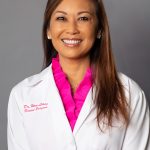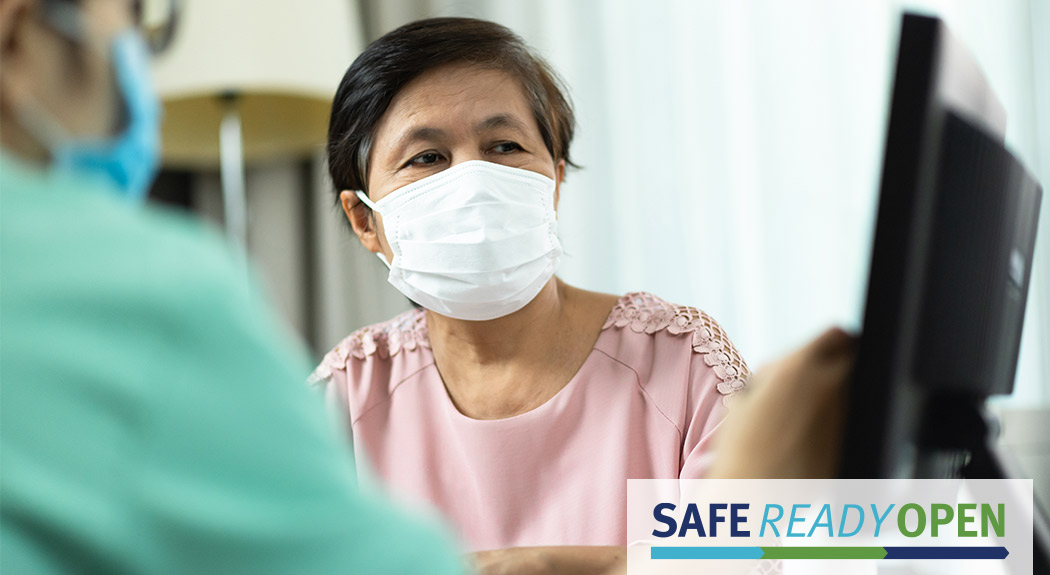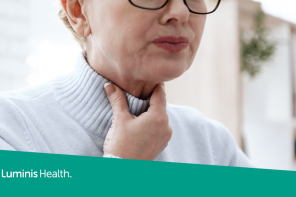We are living in a time of great uncertainty due to the coronavirus (COVID-19) pandemic. The pandemic has forced us to stay home, change our behaviors and in many cases, cancel our plans.
But one activity you shouldn’t postpone or cancel is getting a mammogram.
A mammogram is a low-dose X-ray that allows doctors to look for changes in breast tissue. It is the best tool doctors have for early detection of breast cancer. If you are scheduled to get a mammogram this year, here are some important things to remember.
Early detection is key
With the exception of skin cancer, breast cancer is the most common cancer in women in the U.S. According to the American Cancer Society, it is the second leading cause of cancer death in women. In the U.S., one in eight women will develop breast cancer at some point in their life.
Mammograms don’t prevent breast cancer. But they can save your life by detecting cancer early, typically before a lump can be felt and when it is the easiest to treat. This is why our survival rates are so high. The five-year survival rate for all breast cancer cases is 90 percent. But, when breast cancer is found early and hasn’t spread beyond the breast, the five-year survival rate is 99 percent.
There are two types of mammograms, screening mammograms and diagnostic mammograms. Radiologists use screening mammograms to look for signs of breast cancer in women without symptoms or other issues. Diagnostic mammograms scan a woman’s breast if she has symptoms, such as a lump, or if a screening mammogram detects a change.
When should you begin getting mammograms?
Women who are 25 and older should have a formal risk assessment for breast cancer, according to the Society for Breast Imaging (SBI) and the American College of Radiology (ACR) guidelines. This involves a meeting with your primary care doctor or other provider. They will look at your risk based on family history of breast and ovarian cancers. Women whose mother or sister had breast or ovarian cancer have the highest risk. However, you want to look out for any family patterns of cancer.
The SBI and ACR recommend that women with an average risk of breast cancer begin getting yearly mammograms at 40. Women who are higher risk should begin getting mammograms based on their provider’s recommendations, plus annual supplemental imaging.
Cancers grow at different rates and a “normal” mammogram one year is no guarantee that things won’t change in a year. That’s why it’s important to stick to an annual schedule.
If you notice any changes in the way your breasts look and feel, call your doctor immediately. Your provider can show you how to do a breast self-exam if you have questions.
Mammograms and COVID-19
We understand these are unprecedented times and there are many unknowns. However, we also know that it is safer than ever to come to our outpatient offices for your mammogram. We want to assure you that we have safety measures in place to protect our patients and our staff from exposure to the virus.
Our safety guidelines include:
- Extensive cleaning throughout the day of our equipment and office space.
- Temperature screenings for both patients and staff as well as screenings for other COVID-19 risk factors.
- Spacing out appointments so there aren’t too many patients in waiting rooms at one time. This also gives us more time to focus on individual patients. We can also have patients wait in their cars until it is time to come inside.
- Requiring all of our providers and staff to wear masks. We are happy to provide patients with a mask if they don’t have one.
As we welcome patients back into our office safely, we also want to remind you to please stay home if you are sick. If you think you have symptoms of COVID-19, here’s what to do.
If it’s time for you to come in for your mammogram, please don’t let fear keep you from getting this life-saving screening. Cancer won’t wait until the pandemic ends. And you shouldn’t, either.
We are here and ready to take care of you and your breast health.
 Wen Liang, DO, FACOS, is a breast surgeon with the Rebecca Fortney Breast Center. She can be reached at 443-481-5300.
Wen Liang, DO, FACOS, is a breast surgeon with the Rebecca Fortney Breast Center. She can be reached at 443-481-5300.
 Amy Sarina, MD, is a radiologist with Annapolis Radiology Associates. She can be reached at 410-266-2770.
Amy Sarina, MD, is a radiologist with Annapolis Radiology Associates. She can be reached at 410-266-2770.




